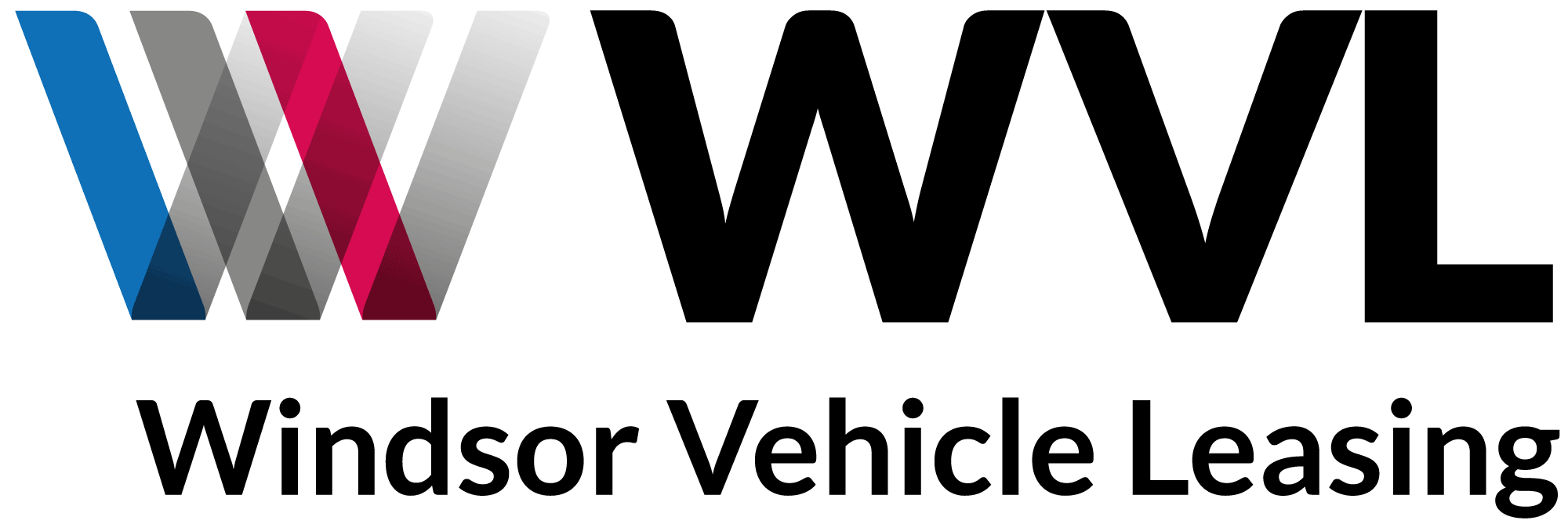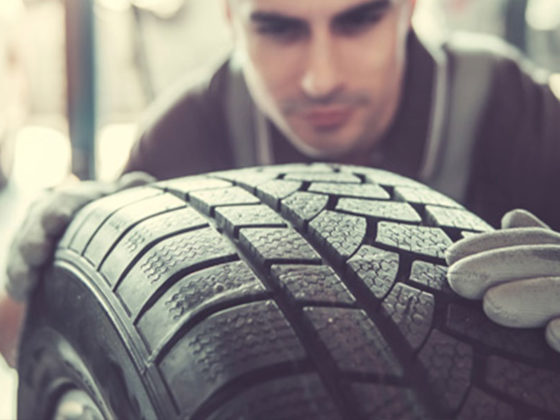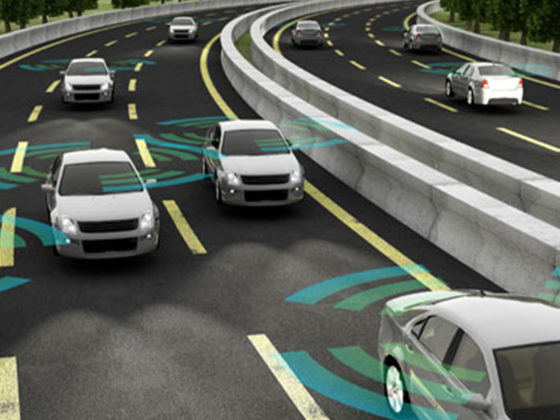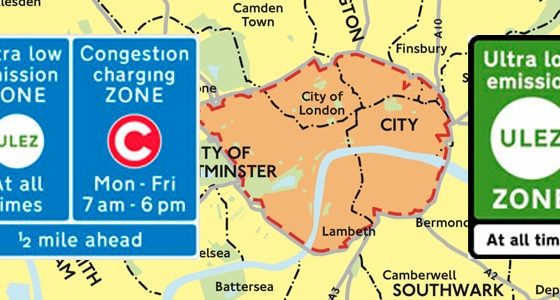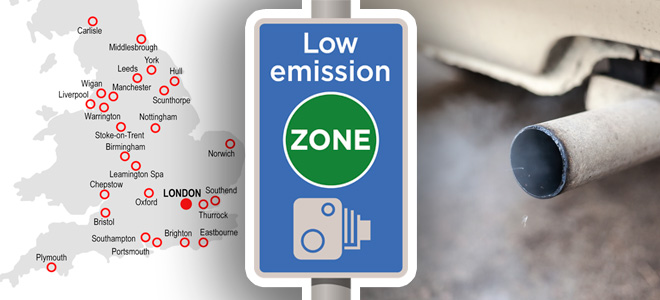
The T-Charge, Toxin Taxes, and Diesel Engines
The T-Charge, Toxin Taxes, and Diesel Engines https://wvl.co.uk/wp-content/uploads/T-Tax-featured.jpg 660 300 Anthony https://secure.gravatar.com/avatar/0ce9a76712b2ebb44190c51857fae37600a61d6fe57138c94dce31a727aa27ec?s=96&d=mm&r=gHot on the heels of the new Crit’Air Emissions scheme for driving in Paris (see our recent blog post for details), and after news of elevated parking rates for diesel vehicles in some London Boroughs, the UK has taken recent vehicle emissions data and made plans to further penalise drivers of the most polluting vehicles during peak hours.
“The air in London is lethal and I will not stand by and do nothing.”
Sadiq Kahn, Mayor of London
“Despite the hype in the media, we should keep in mind that the modern Euro6 Diesel engines with their Catalytic Converters, Diesel Particulate, AdBlue technology and attractively low CO2 are much cleaner than the old diesel engines and are not being targeted with the T-Charge.”
Peter Fletcher, Account Manager at WVL
In the turbulent wake of Dieselgate, the emissions scandal seeded by significant discrepancies in test-conditions emissions versus real-world-driving emissions, the UK has also received a ‘final warning’ from the European Commission for breaching air pollution limits. In one street in London, air pollution levels were measured at the annual limit in just the first week of 2017. And with 40,000 premature deaths caused each year from long-term exposure – over 9,000 of those in London at the last count – action is swiftly being taken.
Recent independent analyses have yielded data which turns the tables on the petrol vs diesel debate. Previously, the key marker was the amount of CO2 generated (a ‘greenhouse gas’ implicated in global warming). On that front, diesel burns more cleanly that petrol, emitting around 20% less CO2 per km than petrol, hence the government’s tax breaks to encourage the sales of diesel engines in 1998. In fact, back in 1990, diesels represented just 6.4% of the vehicles on the road; by 2015, every other vehicle was a diesel. The data, however, overlooked other serious pollutants and real-world analyses has shown diesels to produce 4x the levels of Nitrous Oxides (NOx) as petrol, and 22x the levels of sooty particulates. Policy is changing as a direct result – but not just for diesels, for older petrol engines too.

The T-Charge
A ‘Toxicity Charge’ will come into force 23rd October, 2017 in London where drivers with pre-Euro4 diesel and petrol engines will face a £10 daily fee on top of the existing £11.50 Congestion Charge in order to drive in the that zone 7am–6pm weekdays; that’s £21.50 per day.
Use this checker to see if your vehicle will be affected: www.tfl.gov.uk/emissions-surcharge
This will be superseded in April 2019 when central London becomes an Ultra Low Emissions Zone (ULEZ) with daily charges ranging between £3–£12.50 dependent on your vehicle model’s emissions in a bid to reduce London’s NOx emissions by 50% by 2020. Diesel cars over four years old in 2019 and petrol cars over 13 years old will face the charge 24 hours a day, year-round (in addition to the existing Congestion Charge during weekday hours), in a bid to cut air pollution whilst buses, coaches and HGVs could face charges of £100 per day to operate in the ULEZ. Plans thereafter exist to extend the ULEZ to the North and South Circulars after 2021.
Sadiq Kahn and Anne Hidalgo, the Mayors of London and Paris respectively, are launching the ‘Cleaner Vehicle Checker’ website this autumn where independently assessed, real-world emissions data will be published. This will give consumers and fleet managers crucial information when considering a new vehicle in light of ULEZ fines and restrictions, and it’s hoped this new transparency will incentivise manufacturers to reduce their vehicles’ emissions long ahead of the EU ‘real-world driving emissions’ standards deadline in 2021.
“By having ‘on the road’ testing I believe we will help Londoners make an informed choice and incentivise manufacturers to build cleaner vehicles sooner. The toxicity of the air in London and many other big cities is an outrage and schemes of [this] type have the potential to make a massive difference to the quality of air we all breathe… [London] will have the toughest emissions standard of any world city.”
Sadiq Kahn, Mayor of London
“Every motorist who uses the capital’s roads needs to be ready for some pretty big changes that are coming up as London acts to cut harmful emissions which will either hit drivers in the pocket or force them to rethink their choice of vehicle.”
Nick Lyes, RAC
Country-wide
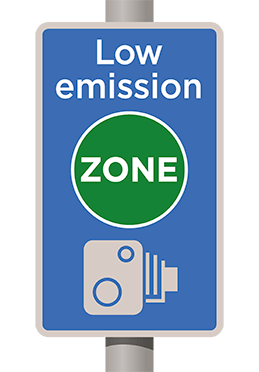 Other polluted cities across England will also face the new restrictions with Toxin Taxes up to £20 per day, or even bans for the heaviest polluters during peak times. These measures are planned for up to ten more town centres, another 25 more where commercial diesels will be the targets, along with increased parking fees in at least 15 towns and cities. The finer details are yet to be worked out, but Environment Secretary Andrea Leadsom has suggested the rules for each location will be written on a case-by-case basis and will announce outline measures imminently.
Other polluted cities across England will also face the new restrictions with Toxin Taxes up to £20 per day, or even bans for the heaviest polluters during peak times. These measures are planned for up to ten more town centres, another 25 more where commercial diesels will be the targets, along with increased parking fees in at least 15 towns and cities. The finer details are yet to be worked out, but Environment Secretary Andrea Leadsom has suggested the rules for each location will be written on a case-by-case basis and will announce outline measures imminently.
What about Diesels?
Diesel engines are being hardest hit; there are 11.9 million on the road in the UK and a scrappage scheme has been suggested but remains in debate as the £2billion cost has been deemed too high. Nevertheless, Theresa May has said she is conscious of past governments encouraging people to buy diesel cars and that this would be taken into account in plans made, but it does remain likely that pre-September 2015 (Euro6) diesel cars will be devalued at resale as a result.
Diesel cars aren’t the only emitters of problem NOx and particulates – nearly a quarter comes from coal and other energy plants, and cargo ships too: fifteen of the largest pump out more oxides of Nitrogen and Sulphur than all the world’s cars combined. And even Electric vehicles with their heavier battery packs have been shown to wear their tyres faster and release more rubber-derived particulates.
Manufacturers are quick to point out that Diesel will still have a place, perhaps moreso in vehicles and developing countries, but given the R&D costs involved, those engines will likely render smaller consumer models as uneconomic purchases. That said, with the advances made already in achieving Euro6 standards, diesel is very much still in the running and manufacturers are standing by it.
“It’s a pity diesel got so much miscredit in the past two years, because we all desperately needed to achieve our goals. It can be a really clean engine, and the new diesels really are. And it can also be, and is, the most efficient combustion engine in terms of CO2 emissions and fuel consumption. But I think social acceptance of the diesel is going down, and that the ban from city centres of diesels is bad for consumer confidence. So I see diesel penetration is going to decline.”
Karl-Thomas Newmann, Opel/Vauxhall
“You get high mileage, you get huge torque, but it will get more expensive and it will probably mean in the entry-level cars there will be a shift from diesel to gasoline. But it is still a great engine, and with the addition of after-treatment it will be very clean. Our Euro6 diesels are the best cars you can buy in the industry when it comes to emissions. Diesel is not at its end.”
Herbert Diess, Volkswagen
The Way Forward
Advances in technology are enabling engines to be made more efficient – both petrol and diesel, and with hybrid and all-electric vehicles becoming more mainstream and affordable, drivers have an array of options to consider when making a vehicle choice. Vehicle purchases are significant investments, and with technology moving so fast, it’s getting hard to future-proof that investment.
Now, more than ever, Leasing is the ideal option when considering a new vehicle as it affords you complete flexibility. Motoring doesn’t need to involve the long-term commitment of ownership: trying to select a model now which will still suit you – and not be hit with emissions taxes – in another ten years time.
WVL offer vehicle lease contracts from 1 month to 4 years. Call us on 01753 851561 to discuss the perfect vehicle for your requirements.
Information correct at the time of publication.
